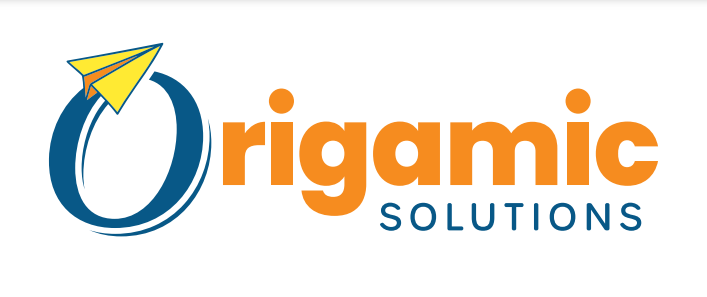Measurements – You Can Only Manage What You Measure
In their pure and unadulterated form, measurements are the judge that tells us if we are progressing or regressing. No matter if you are competing for Olympic gold, producing a product, delivering a service, or just trying to lose some weight for a healthier lifestyle, measurements matter. They are an important part of our everyday life, but in business they are critical for success, and why they are the second step in our IMPACT Methodology™.
If you were asked the following questions, how would you respond?
- Do you have a growing business?
- Do you have a successful business?
- Do you have a profitable business?
You may respond on instinct with a “Yes”, because we all want to view our business as growing, successful, profitable, or a combination of the three, but how do you know your answers is accurate? Can you prove it? Many business owners are so busy that they depend on memory, emotions, feelings, and perception when evaluating situations or answering the questions above, but we can be and are deceived by our own eyes and minds. Psychologist over the years have proven that our brains lie to us. Can you recall a time when you said, “I could have sworn I …”? In an article written by Similar Rayat titled” Six ways your brain will lie to you” published in Forbes magazine, Ms. Rayat, Founder and Principal Psychologist, identifies the following ways our brains lie to us include:
- Over generalization
- Emotional Reasoning
- All-or-Nothing Thinking
- Mind-Reading
- Mental Filters
- “Should” statements
She also identifies that this occurs frequently when we are tired, overloaded, and under pressure. These situations are prevalent in the daily life of an entrepreneur and small business owner. As a result, documenting and regularly reviewing key measurements across marketing and sales, finance, and operations are critical to decision making in the day-to-day and for the future.
Now that it is understood that documented data is more reliable than our memories and perceptions, you need to determine which measurements you should capture and monitor. It is important that your measurements are aligned to your purpose, values, strategic plan and goal. This alignment ensures you are measuring what is most important to you and not getting distracted. The infrastructure developed in the first step of the IMPACT Methodology™, provides the framework to identify at what points in the processes measurements should be captured, if the measurement should be captured manually or in a system, which people are involved, and what the performance expectation level is. Having the processes and role definitions also help to establish accountability and traceability at the tactical level.
Relevant, reliable, and accurate measurements enable us to be prepared, set reasonable expectations, make predictions of future performance, and control costs and quality. It is critical that you invest the time and resources to collect and analyze key performance measures. If the data collection processes are too cumbersome or there is a failure in the logic or equipment used to capture the measurements, then the data quality will provide a false narrative which will lead to mis-informed decision making. The first rule of Accounting “For every debit there is a credit”, teaches us that you can only get out what you put in.
In addition to establishing a clear understanding of your business's performance and health, there are three other key benefits to consider:
|
Predictability |
Fosters confidence to make an educated guess of what may occur in the future based on past performance measures or leading indicators (measurements taken and evaluated during the process as opposed to at the completion of the process). The higher the level of consistency, the more predictable the forecast will be. |
|
Reduction of Waste / Focus on Value-add activities |
Help your business to reduce costs and ensure there aren’t any unnecessary or standardized “work around” activities being executed and costing the company extra. Auditing these processes will also help to identify if there are any cost leakages where there may be excess usage of materials which result in extra cost to your business. This is commonly observed in the bar industry where alcohol pours are closely monitored. |
|
Efficiency / Performance Improvement |
Proactively encouraging and even rewarding leadership and team members to identify and present solutions to improve efficiency and performance can help your company prosper because problem solving, and efficiency gets embedded into the culture of the company and mindset of the team. |
To achieve the full potential of these benefits, it is important to be transparent with your findings and work on improvements as a collective unit.
My challenge to you is to:
- Ensure you have meaningful measurements embedded in your processes and confirm data is being collected in a manner that ensures accuracy and maintains data integrity,
- Conduct regularly scheduled reviews of your performance measurements to:
- Identify trends and ensure they are moving in the desired direction
- Facilitate data driven decision making and sharing the information with your team.
If you are reading this and want to know how to get started, here are the steps you can take:
- Identify what data you are or may be interested in capturing, known as Key Performance Indicators (KPIs). Ensure they are in alignment with your goals and objectives. These may include Sales, Revenue, Expenses, Profit, Profit Margins, Hours Worked, Units Produced, Cost of Materials, Material Usage, etc.
- TIP: Be sure you balance effort to collect & analyze against the value of the learnings from the measurement. Ask yourself, “Is the juice worth the squeeze”?
- Establish collection points and tasks built into processes that will ensure the data is consistently collected in an accurate and reliable manner.
- Establish the ability to collect the data captured into a centralized location for analysis.
- Implement quality checks to ensure collection processes are not failing and data integrity is being controlled.
- Schedule regular reviews of the collected data. If you don’t use it, then it is a waste of time and resources to collect it.
Remember, you can only manage what you measure!

.png?width=352&name=Blog%20Headers%20(1).png)

